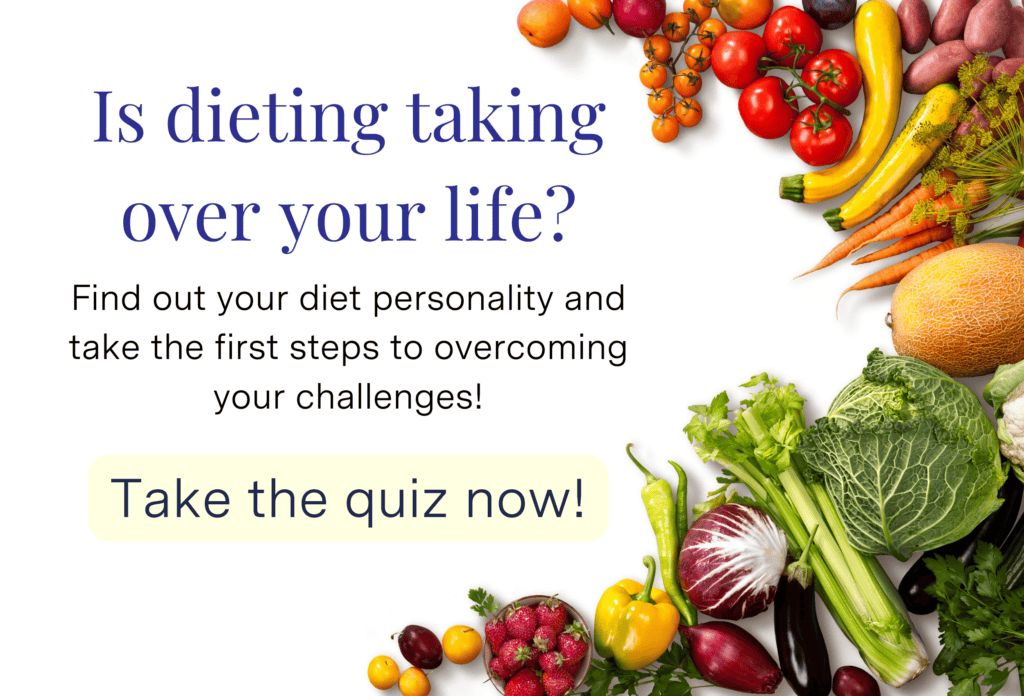
If you haven’t tried at least one of the latest diets doing the rounds yourself, then you probably know someone who has.
It’s hard to avoid being bombarded with information about what the celebs (or your work colleagues) are currently doing to stay ‘in shape’. But if these diets are so effective, how come ‘real’ people seem to bounce from one diet to the next without seeing any long term result?
The truth is, we all want a quick fix.
Some ‘magic bullet’ that sorts our problems out with the click of our fingers. For the majority of us, we want to lose weight and we want that weight gone yesterday. The pressure our culture puts on us to be thin or reside in a smaller body is immense. And, fad diets promise to get the weight off fast. That’s what sells.
A fad diet will typically promise rapid weight loss by promoting ‘magic’ foods or combinations of foods and will exclude or severely restrict certain food groups or nutrients, such as carbohydrates. It might give you a regime of shakes to consume, instead of real food or it may offer you a meal plan to follow. Whatever it is, there are rules that you must stick to in order to be successful and 99% of the time, the rules are restrictive, unsustainable and sometimes even dangerous.
The problem is, the marketing of these diets is so compelling.
They are promoted by testimonials rather than scientific studies. Testimonials are the least reliable source of good information because humans are subjective, biased and not very good at looking at a situation holistically. Yet, personal testimonies are emotive, captivating and relatable. We love them!
Also, whilst a fad diet might result in rapid weight loss in the short-term, such diets are difficult to sustain and may even cause serious health problems. Because they characteristically cut out key foods, fad diets can lead to dehydration, weakness and fatigue, nausea and headaches, constipation and inadequate vitamin and mineral intake. If followed long-term, fad diets may even lead to increased risk of various diseases.
Although fad diets do encourage rapid weight loss, this loss in body weight is unlikely to be due to diminished fat stores. Rather, the initial weight lost from fad dieting is mostly water and lean muscle, which you obviously don’t want. When food intake is severely restricted, your body begins to break down muscle, rather than fat, to meet energy requirements. We also lose our muscle glycogen stores, which occurs with a loss in water, accounting for rapid weight loss in the early days. In addition, metabolic rate is reduced so that once the diet is stopped the body will gain fat much more readily than prior to starting the diet. In fact 95% of people re-gain the weight they lost and often end up heavier than they were at the beginning. It becomes a stressful, all-consuming battle to be constantly fighting your body.
Is weight loss really worth the stress?
You might be thinking: “But I want to lose weight to be healthy???? Does this mean if I can’t lose weight, I’ll never improve my long term health?”
If your desire to lose weight is coming from a place of wanting to improve your health, then we’ve got good news. The science actually suggests that your body weight is less connected to your health than we once thought. I know! It’s not what the diet industry wants you to hear! It is health behaviours that are the biggest predictor of long term health. If you can consistently do small, achievable, sustainable, healthy things every day, you WILL improve your health outcomes regardless of whether you lose weight or not!
Focus on health
We would argue, that because focussing on weight leads you to this restriction/binge cycle and effects your consistency with health behaviours, we strongly encourage our members to take a health first approach. Focussing on health means you focus on aspects of your life that you can control. This is empowering and reduces the stress and frustration of focussing on weight, a number on a set of scales, that you don’t have direct control over.
Wouldn’t it be nice to not feel so disappointed with your efforts all the time and get into a groove of consistent healthy behaviour? Just something to think about.
So now that we’ve established that fad diets and ‘quick fixes’ don’t result in the long-term weight loss or more importantly health, that you’d like, what can you do to achieve a healthier self? It’s really pretty simple – adopt a varied, easy to follow, balanced diet. In combination with regular physical activity and other lifstyle behaviours, a balanced diet will lead to better long term health, not to mention an overall improvement in mental health and wellbeing.
At Ayla Health, our team has the knowledge and experience to help you change your eating habits long term. We can get you back on track with a healthy eating in a way that suits your personal energy and lifestyle requirements, whilst ensuring that you obtain all the nutrients you need to maintain good health. It can be hard to change old habits at first, but here at the Ayla Health we will help you to make gradual changes that are easy to sustain and provide tips to help ease the transition.
Join Ayla Health Now – It’s FREE!






